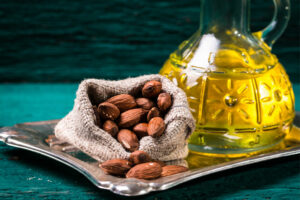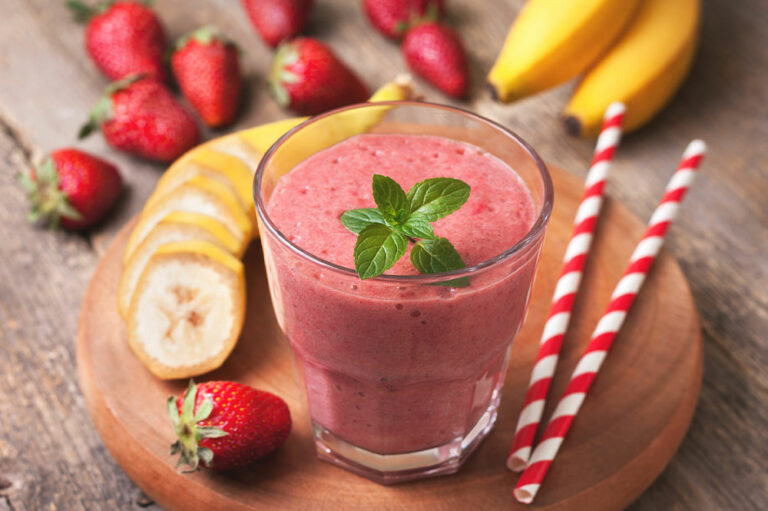Chronic obstructive pulmonary disease, or COPD, is the umbrella term comprising progressive lung disorders- chronic bronchitis and emphysema. Both these conditions involve blockage of airflow from the lungs and have various underlying causes, including air pollution and exposure to dust. Individuals with COPD experience symptoms such as coughing up mucus, shortness of breath, and wheezing. Alongside following the suggested treatment course, incorporating certain foods into one’s meal plan can help fight the disease.
Types of COPD
COPD occurs in two forms – chronic bronchitis, characterized by long-term cough, and emphysema, involving damage to the air sacs.
Chronic bronchitis
Chronic bronchitis occurs due to inflammation and swelling of the bronchial tubes, causing the accumulation of mucus along the tube lining and narrowing of its opening. Moreover, the bronchial tubes comprise small, hair-like projections called cilia, which expel mucus from the airways. However, chronic bronchitis damages these cilia, furthering mucus accumulation. Chronic bronchitis is typically diagnosed when an individual experience cough for at least three months a year for two consecutive years and tests negative for tuberculosis and other lung conditions.
Emphysema
Emphysema involves the eventual rupture and damage of air sacs or alveoli, leading to large air spaces forming in the organ. Consequently, the lung cannot pump optimal oxygen levels to the bloodstream and other body parts. Patients with emphysema may also suffer from chronic bronchitis. Shortness of breath is among the most common emphysema symptoms, initially causing an issue only while engaging in physical activity but gradually affecting the patient even while resting.
Foods to eat while healing from COPD
The general rule of thumb for individuals with COPD is maintaining a meal plan low in carbohydrates. Lower carb intake results in lower carbon dioxide production, helping COPD patients better manage their symptoms. Some foods that can help patients with COPD heal better are listed below.
Fatty fish
Several studies indicate that a regular intake of fatty fish, or fish containing omega-3 fatty acids, can help reduce lung inflammation and control COPD symptoms. Experts believe omega-3 fatty acid compounds play a significant role in battling COPD-related bacterial lung infections. Moreover, fish are excellent sources of protein, which is required by the body to strengthen the immune system and respiratory muscles. Thus, it is a good idea to incorporate fatty fish varieties like salmon, tuna, herring, and mackerel into one’s meal plan.
Whole grains
Although a meal plan low in carbohydrates is recommended for patients with COPD, incorporating complex carbs can enhance digestion, boost immunity, and control blood sugar levels. Since diabetes makes individuals more susceptible to lung diseases like COPD, it helps to eat whole grains, such as rolled oats, brown rice, barley, millet, and quinoa, which are healthy complex-carbohydrate sources. Moreover, whole grains are sources of insoluble fiber, which speeds up the digestive process in the stomach and intestines and helps prevent constipation and bloating. Since such digestive issues can aggravate breathing problems among patients with COPD, whole grains should be incorporated in limited quantities into the meal plan.
Spinach
Due to low oxygen levels in the blood, many patients with COPD suffer from anemia. Iron deficiency is a common trigger factor of anemia. Spinach is a great immunity booster for those healing from COPD, supplying the body with optimal iron levels. It is also rich in vitamin C, which the body requires for adequate iron absorption and to fight infections. Further, spinach is loaded with omega-3 fatty acids, which help reduce lung inflammation and control COPD symptoms. It also contains high levels of potassium, essential for healthy lungs. Research indicates that cooked spinach ensures better iron and calcium absorption than when eaten raw. Therefore, patients with COPD can increase their spinach intake by adding it to soups, stir-fries, and sauces.
Yogurt
Packed with essential nutrients like calcium, phosphorus, selenium, and potassium, yogurt can help boost overall lung function and accelerate one’s healing process while recovering from COPD. Further, being a natural probiotic and protein source, it significantly boosts the immune system, enhancing gut health and preventing the risk of lifestyle diseases, which can aggravate COPD symptoms.
Swiss chard
This leafy green vegetable is high in potassium, magnesium, and calcium, essential for healthy lung functioning. It is also loaded with vitamin A, which has anti-inflammatory properties; vitamin C, essential for iron absorption; and vitamin K, known to control emphysema symptoms and eliminate inflammation. It is also an excellent source of iron, increasing blood count among patients with COPD. This low-calorie vegetable can be added to stews, stir-fries, soups, quiches, etc.
Beetroot
Beets and beet greens contain nitrates in high concentrations, increasing oxygen levels in the bloodstream and relaxing blood vessels. Thus, studies have shown that beetroots can help improve lung functioning considerably. Moreover, they are rich sources of iron and can help patients with COPD combat anemia and boost their immunity. One can enjoy this root vegetable in soups, gravies, salads, smoothies, etc.
Apples
Besides being juicy delicacies, apples have high levels of flavonoids and vitamin C, essential for lung protection and increased immunity. Also, vitamin C helps in better iron absorption. Being a rich antioxidant, apples can help reduce inflammation caused by COPD and reduce oxidative stress.
Turmeric
Turmeric contains curcumin, a polyphenol that has several anti-inflammatory properties. Studies have shown that curcumin plays a vital role in reducing inflammation in the airways and protects the lungs from any damage caused to them. It also helps break down mucus formation and expel excess mucus from the airways.
Blueberries
These delicious berries are packed with anthocyanins, which have been shown to protect the lungs from oxidative damage. They also contain high levels of vitamins C and K, essential for iron absorption and reducing emphysema symptoms and inflammation, respectively. Furthermore, it contains antioxidants, which can reduce inflammation caused due to COPD.

















